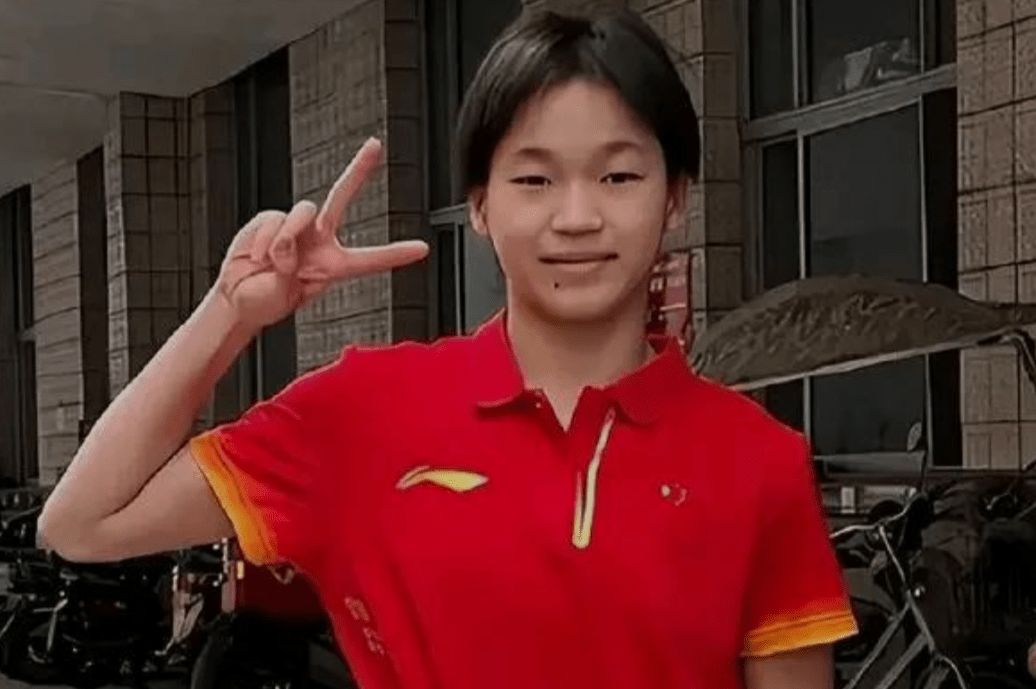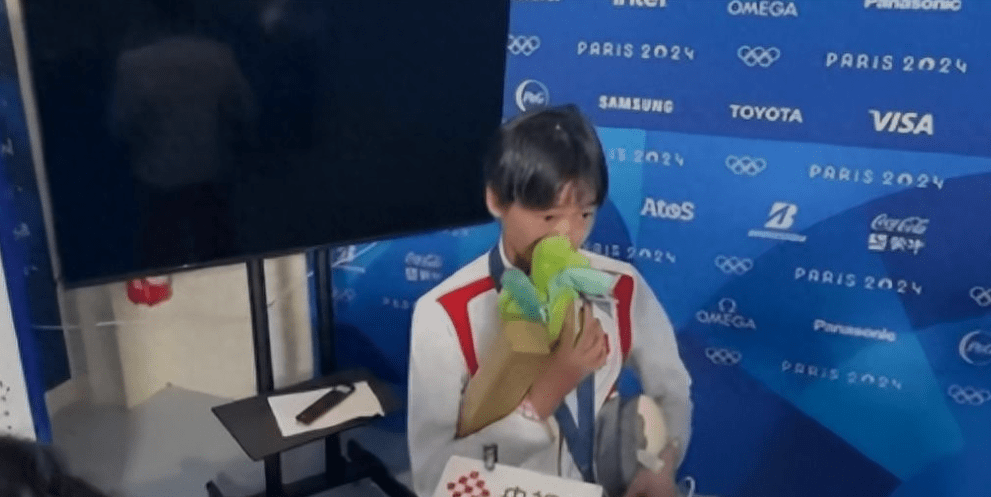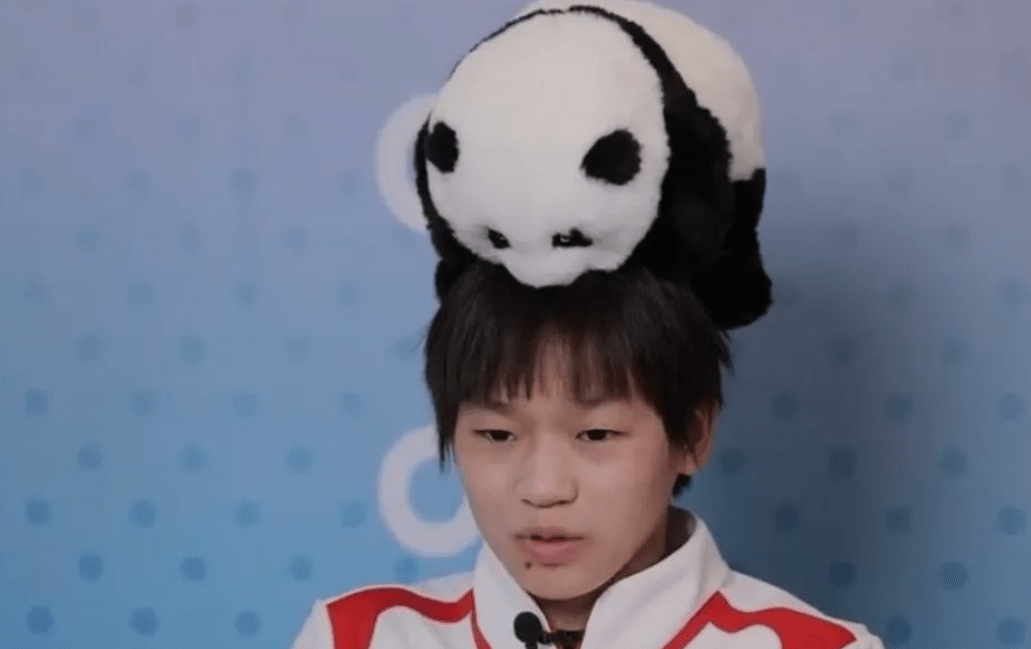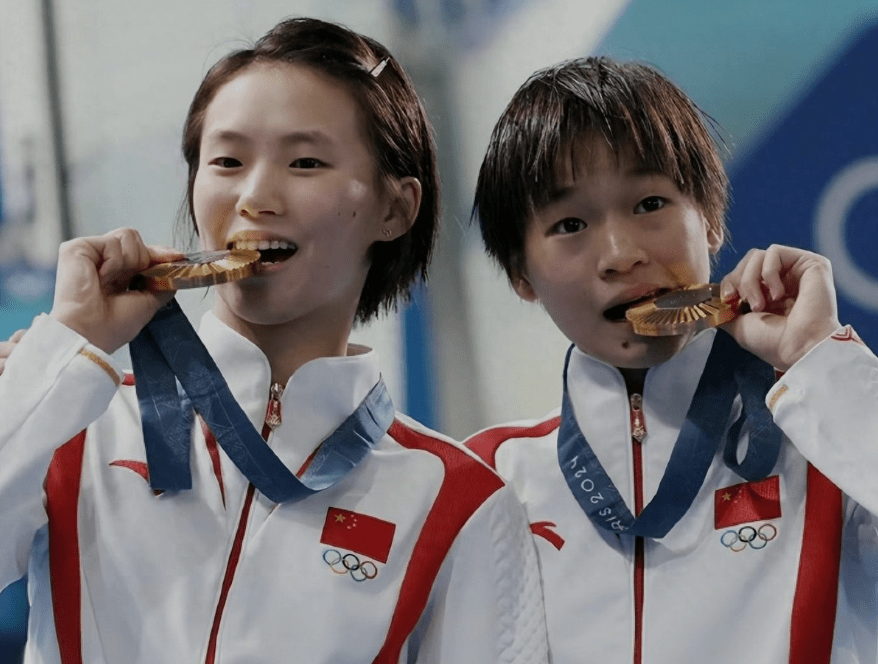On the podium in Paris, Quan Hongchan once again stood at the highest position. With an entry as perfect as a textbook, she successfully defended her gold medal in the women's individual 10-meter diving event at the Olympics. This should have been a moment of immense pride for the nation, but amidst the waves of praise, a conflict quietly emerged.

During a live broadcast, Zhu Xiaolong, a reporter from Southern Daily, unreservedly mocked Quan Hongchan as a "fool" and "crazy," instantly igniting the anger of the entire internet. The truth of the matter has yet to be revealed, but public anger has already pointed directly at this journalist—a person who should base their work on facts and respect. The question is, what does such speech mean in the face of professional ethics and social morality?

Quan Hongchan, the diving prodigy who became famous with a single jump at the Tokyo Olympics, was only 14 years old when she permanently inscribed the achievement of a "perfect dive" into Olympic history. From that moment on, her life was completely rewritten, transforming from a small rural girl into a sports star watched by her village, the whole country, and even the world. However, the fame brought not only applause but also overwhelming attention, and sometimes inexplicable harsh criticism.

In the years since her fame, public opinion has never stopped focusing on her. Not only are they concerned about her performance in competitions, but they also comment on her personality and lifestyle. There were reports that she likes to eat snacks during training breaks, which led to a flood of comments from netizens; some said she was "down-to-earth," while others criticized her for being "not self-disciplined enough." In an interview, she sincerely said, "I actually don't like this kind of attention; I just want to train well, but it seems everyone thinks I should live up to their expectations." This pressure is unbearable for anyone, right? But for young athletes like Quan Hongchan, this has long become a "common meal."

A psychological pressure survey targeting young athletes showed that 66% of top athletes feel anxious due to excessive exposure, and some even experience psychological abnormalities or performance failures in key competitions because of it. This is not an exaggeration—athletes are undoubtedly the focus, but they are also ordinary people with emotions and pressures! The groundless evaluations from the outside world are too harsh for a 14-year-old girl who has just started her career.

Let's talk about the live broadcast of this journalist. Zhu Xiaolong's remarks could be said to be the last straw that broke the patience of the public. In the live broadcast, he faced the camera and unabashedly used insulting language to describe Quan Hongchan, even glossing over her precious championship achievements. Can you imagine the reaction of netizens? The barrage on the screen almost unanimously took a stance: "Is this something a journalist should say?" "Southern Daily needs to rectify its image," "Give Quan Hongchan an apology!" ...

Why did everyone react so strongly? In fact, this is not only related to Quan Hongchan's personal dignity but also to the entire society's basic attitude towards young athletes and even professional spirit. Before this incident, we had experienced too many similar events—appearance, personality, results; the media went out of their way to nitpick and create conflicts, completely ignoring the efforts and emotions behind the athletes. Now, the public is no longer willing to tolerate these harmful remarks.

In fact, Zhu Xiaolong's remarks are not an isolated case but a reflection of common problems among some media practitioners. This reminds me of the Xie Xingfang incident. When she won the gold medal in the Czech Republic, the glory she could proudly bring back was criticized by a journalist for her appearance, saying she "doesn't meet the expected image of an athlete." Such examples abound, as if the performance of athletes is no longer important, but rather "whether they can attract attention" has become the key.

Even more relatable is the experience of Xiao Ruoteng. On the international gymnastics stage, due to a minor mistake, he was not only suppressed in scoring by some foreign judges but also subjected to collective mockery and sarcasm from some domestic netizens and media. This pattern of "raising expectations and then mercilessly crushing them" is becoming increasingly severe. It makes one wonder: where is the bottom line for the media? What makes some journalists place their subjective emotions above professional standards?
Speaking of this, it is necessary to mention the international comparison. After Quan Hongchan once again won gold in Paris with her stunning performance, the British media BBC described her as: "An artist on the diving platform, she conquered every detail and every audience." This description is full of respect and appreciation, reflecting a full recognition of the personal efforts of the athlete. Domestic media should be at the forefront of speaking up for athletes, but unfortunately, some irresponsible reporting and remarks have repeatedly damaged the glory that these champion athletes should enjoy.
Fundamentally, the gap is not in reporting ability but in professional conduct. Some journalists, in order to attract attention and gain traffic, frequently shift the focus of their reports to controversial content, willingly abandoning in-depth analysis or technical evaluation. Compared with the professional attitude of international media, perhaps we really need to reflect on what the value of the media is?
Returning to Quan Hongchan, she is just an ordinary 17-year-old girl, who happens to have a bit more brilliance than her peers in her field. Yet the public and the media always scrutinize her every word and action with a magnifying glass, sometimes even with prejudice. Many people overlook that behind the dazzling light of the athletes, there is also an ordinary side.
Psychological experts say that overly deifying athletes, especially young ones, can lead to role conflicts and psychological burdens, and may even affect their professional longevity. This viewpoint is worth deep thought: some support and attention may be well-intentioned, but if it crosses the line, it easily turns into "kidnapping in the name of love." Such kidnapping is not only unfair to the athletes themselves but also brings negative effects to the entire social environment.
Regardless of the final outcome of this incident's investigation, Zhu Xiaolong's remarks have become a stark reminder. Star athletes face greater challenges than the competition itself, and society as a whole must choose between "unscrupulous consumption of heat" and "rational support." We cannot let the noise of falling drown out the applause of rising.
We hope Quan Hongchan can become more determined after this turmoil and respond to all unfair doubts with gold medals. More importantly, we hope that the future public opinion ecology will have more warmth and less sharpness.
(Disclaimer: The processes and images described in the article are sourced from the internet. This article aims to promote positive social energy without vulgar or inappropriate content. If there are any copyright or personal infringement issues, please contact us promptly, and we will delete the content immediately! If there are any questionable parts of the event, we will delete or make changes upon contact.)